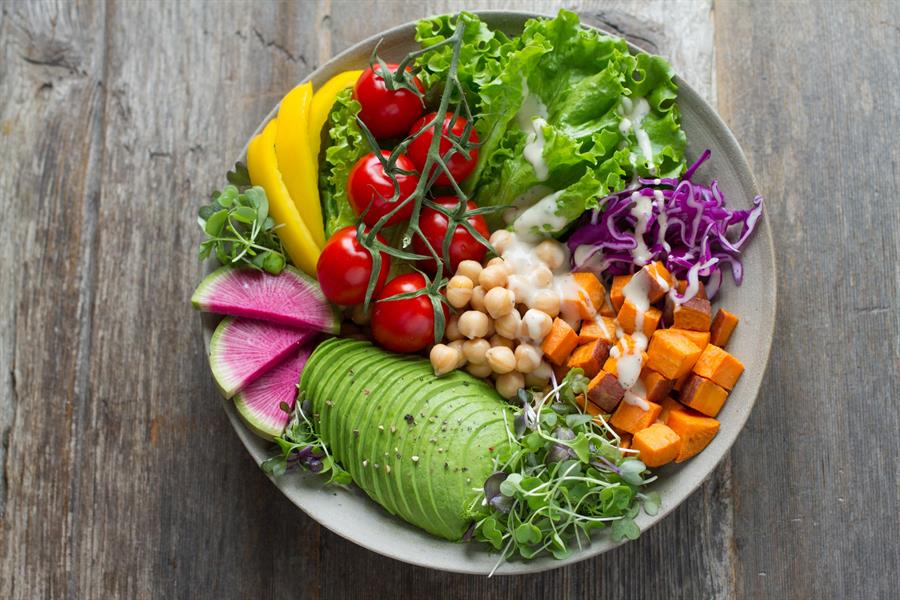- Home
- Mind & body
- The three best healthy stress foods
At CBHS we help you manage your health challenges. We believe in offering you the services, support and tools you need to live your best life.
Health and Wellness Programs are available to support eligible members towards a healthier lifestyle. Each Health and Wellness Program is subject to its own eligibility criteria.
Contact us for more information and to confirm your eligibility for a program.
The three best healthy stress foods

Healthy stress foods
It’s time to reshape our thinking of stress foods! We know that we tend to eat badly when we’re feeling stressed or depressed, giving us a false association between traditional comfort meals (which are normally high in bad fats or processed sugars) and feeling better.
But by rethinking how and what we consider stress foods, we can adopt healthier ways to feel better short-term and reduce stress in the long-term.
What foods can help reduce stress and depression?
A study considering the relationship between mental health and food found that the most common dietary deficiencies of subjects experiencing anxiety and depression were omega-3 fatty acids, B vitamins, minerals and amino acids. The study also found that patients treated with folate, vitamin B12 and magnesium had decreased symptoms of depression.
We’ve narrowed down our stress food search to foods high in magnesium, omega-3 fatty acids, and folate/B vitamins – here are our favourite picks!
Magnesium rich foods
Nuts and seeds – you can get your daily dose of magnesium out of a small handful of nuts and seeds (levels vary on the type of nuts and seeds). These are great to have sitting around your desk as snacks, or if you’re not particularly keen on their taste or texture, added in small doses to salads or other meals!
Examples – brazil nuts, walnuts, pine nuts, almonds, cashews
Dark, leafy greens – the hipster revolution brought kale to prominence, and not without benefits. Most dark, leafy greens contain high levels of magnesium, and are versatile enough to be turned into a salad, mixed in with a stir-fry or curry, or even baked into chips!
Examples – Swiss chard, spinach, kale, turnip greens, collard greens
Fish – fish has the highest levels of magnesium out of all the meats, and can be used in stews, salads, stir-fries and curries.
Examples – Mackerel, pollock, turbot, tuna
Dark chocolate – if you’re already turning to cocoa-ey goodness to help you through the rough patches, this is great news! Instead of choosing high sugar or heavily preservative-laden chocolates, try darker chocolate with larger quantities of cocoa.
Omega-3 fat rich foods
Fish – here it is again and probably surprising no-one, fish has huge quantities of omega-3 fatty acids.
Examples – mullet, Atlantic salmon , Australian salmon, sardines, bream
Fats and oils – what you use to cook, dress, and spread on your food can be a great source of omega-3. We’d recommend that you gravitate towards more natural spreads and minimally processed oils.
Examples – Butter, olive oil, flaxseed oil, peanut oil
Meat and eggs – the carnivores out there can find rich sources of omega-3 in their usual diet.
Examples – lamb, beef, chicken, eggs
Folate/B vitamin rich foods
Vegetables and fruits – think of your most cliché healthy vegetables and fruits – those are your sources of folates! Easy to add into your diet as snacks or complements to the rest of your meals.
Examples – Broccoli, spinach, lettuce, asparagus, avocado, oranges, raspberries, strawberries, grapefruit
Beans and peas – Great meat substitutes for the vegans and vegetarians out there, or as an addition to thicken or add texture to other meals.
Examples – Mung beans, pink beans, pinto beans, kidney beans, chickpeas, black-eyed peas, lentils
Liver – while not as popular as it once was, liver is an incredibly rich meat. Normally eaten thinly sliced, it can be a great addition to stir-fries stews.
Example – lamb liver, veal liver, pork liver
Food can’t cure everything, but by making small, simple changes to your diet, you can start to see positive results. If you want to learn more about how your food and your mind work, check out our articles on eating your way to happiness and our ultimate guide to why and when you eat badly.
Sources:
Heart Foundation: Sources of omega-3
Global Healing Centre: 15 foods high in folic acid
Healthaliciousness: Foods high in magnesium
Health Central: Mineral deficiencies and mood
Understanding nutrition, depression, and mental illness
If you need support, please call Lifeline on 13 11 14 or visit www.lifeline.org.au/gethelp or call the Beyond Blue Support Service on 1300 224 636 or visit www.beyondblue.org.au/about-us/contact-us
If you’re a CBHS member with hospital cover or packaged product, you maybe eligible for our Mental Health Program. For more information on the program, contact CBHS’ Health and Wellness team on 02 9685 7567 or email at wellness@cbhs.com.au.
All information contained in this article is intended for general information purposes only. The information provided should not be relied upon as medical advice and does not supersede or replace a consultation with a suitably qualified medical practitioner. CBHS endeavours to provide independent and complete information, and content may include information regarding services, products and procedures not covered by CBHS Health Cover policies. For full terms, click here.
Health and wellbeing
programs & support
You Belong to More with CBHS Hospital cover:
- Greater choice over your health options including who treats you
- Get care at home with Hospital Substitute Treatment program
- Free health and wellbeing programs to support your health challenges
Live your healthiest, happiest life with CBHS Extras cover:
- Benefits for proactive health checks e.g. bone density tests, eye screenings
- Keep up your care with telehealth and digital options
- Save on dental and optical with CBHS Choice Network providers
